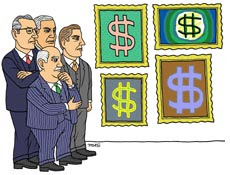
finding out that you can only withdraw 400 euro. That is what happened to thousands of people in the UK and in the Netherlands, who had a deposit account at the Icelandic banc Icesave.
Icesave, is a part of Landsbanki, on of the 3 bancs that faced serious problems caused by the credit crunch in Iceland. Iceland itself has faced enormious difficulties to save their national economy, the Icelandic government remains positive, and insures that the accounts at Icesave are safe; but for the Icelandic people the future, with high inflation, unemployment,… is looking less bright.
Sanne Vandenborre
http://eng.utanrikisraduneyti.is/speeches-and-articles/nr/4500














